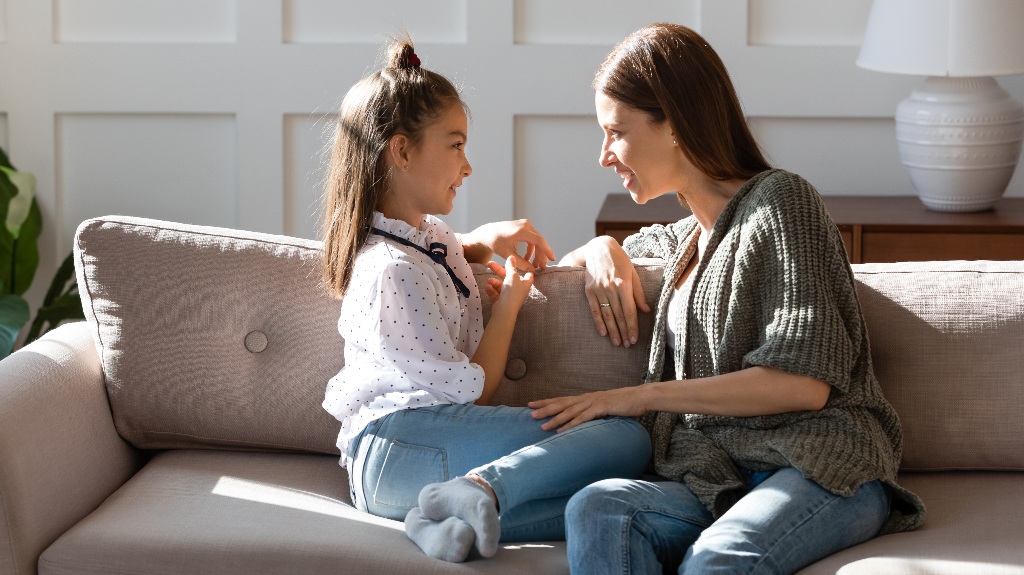
Telling your child about a divorce might be one of the hardest conversations you’ll ever have. You want to be honest without overwhelming them, calm yet not cold, and clear without being too much. And you want to protect their heart while your own may still be breaking.
What you say and how you say it can shape how your child copes not just in the moment, but in the months and years ahead. That’s why it’s important to tailor the conversation to your child’s age and emotional development.
Here’s how to approach this delicate moment with empathy, clarity, and care.
Keep It Simple for Younger Children
For toddlers and preschool-aged kids, keep the message clear and simple. They don’t need details about legal issues or relationship breakdowns. They just need to know that they are safe and loved.
You might say something like:
“Mom and Dad are going to live in different houses, but we both care about you deeply, and that will never change.”
Avoid blaming language or emotionally charged explanations. Kids this age are concrete thinkers. Keep the focus on what will change (like living arrangements) and what will stay the same (your love and care).
School-Aged Children Need Reassurance and Structure
Children in elementary school may have more questions. They’re old enough to notice tension and may blame themselves for the split. It’s important to clearly tell them that the divorce is not their fault.
Be prepared to answer questions like:
- “Where will I live?”
- “Will I still see both of you?”
- “Why are you getting divorced?”
Offer reassurance, but be honest. You can say:
“We’re not getting along the way we used to. But we both love you, and you’ll still spend time with each of us.”
Also, try to provide as much routine and stability as possible. Predictability helps kids feel secure during uncertain times.
Teens Need Respect, Honesty, and Space
Teenagers are more emotionally and intellectually aware. They may already sense that something is wrong before you say anything. Be upfront, but respectful. They don’t need every detail, but they can handle more context.
You might say:
“We’ve made the decision to separate because our relationship isn’t working anymore. This is between us, not you. We want to be honest with you and hear how you’re feeling.”
Teens may be angry or withdraw. Don’t take it personally. Give them space, but stay available for conversation. Invite them to express their feelings, even if those feelings are difficult.
Don’t Overshare or Criticize the Other Parent
It’s tempting to explain your side of the story. But kids don’t need to be drawn into adult conflict. Avoid talking negatively about your co-parent, no matter how tense things may be.
Remember: your child loves both parents. Speaking harshly about the other can create confusion, guilt, or loyalty conflicts.
Use “We” Language When Possible
If you and your co-parent can talk to the children together, that’s ideal. Presenting a united front can help reduce fear and demonstrate that you’re still a team when it comes to parenting.
Use statements like:
“We’ve decided this together. We both love you, and we’ll both be here for you.”

Expect Ongoing Conversations
One talk isn’t enough. Your child may revisit the topic over time, especially as circumstances change. Continue to check in, answer questions honestly, and encourage them to express their feelings.
If your child struggles emotionally, don’t hesitate to seek professional help. A therapist specializing in family transitions can make a significant difference.
You Don’t Have To Navigate Divorce Alone
At Rice Law, we know that divorce isn’t just a legal process. It’s a personal journey that affects every part of your life, especially your children. We’re here to guide you through it with compassion and clarity, helping you protect your parental rights and your child’s well-being.If you’re preparing for divorce in Maryland and need guidance on custody or parenting plans, contact Rice Law today for a confidential consultation.
Blogs published by Rice Law are available for informational purposes only and are not considered legal advice on any subject matter. The reader understands that by viewing blog posts no attorney-client relationship is created between the reader and the blog publisher, Rice Law. The blog should not be used as a substitute for legal advice from a licensed professional attorney, and readers are urged to consult their own legal counsel on any specific legal questions concerning a specific situation.

